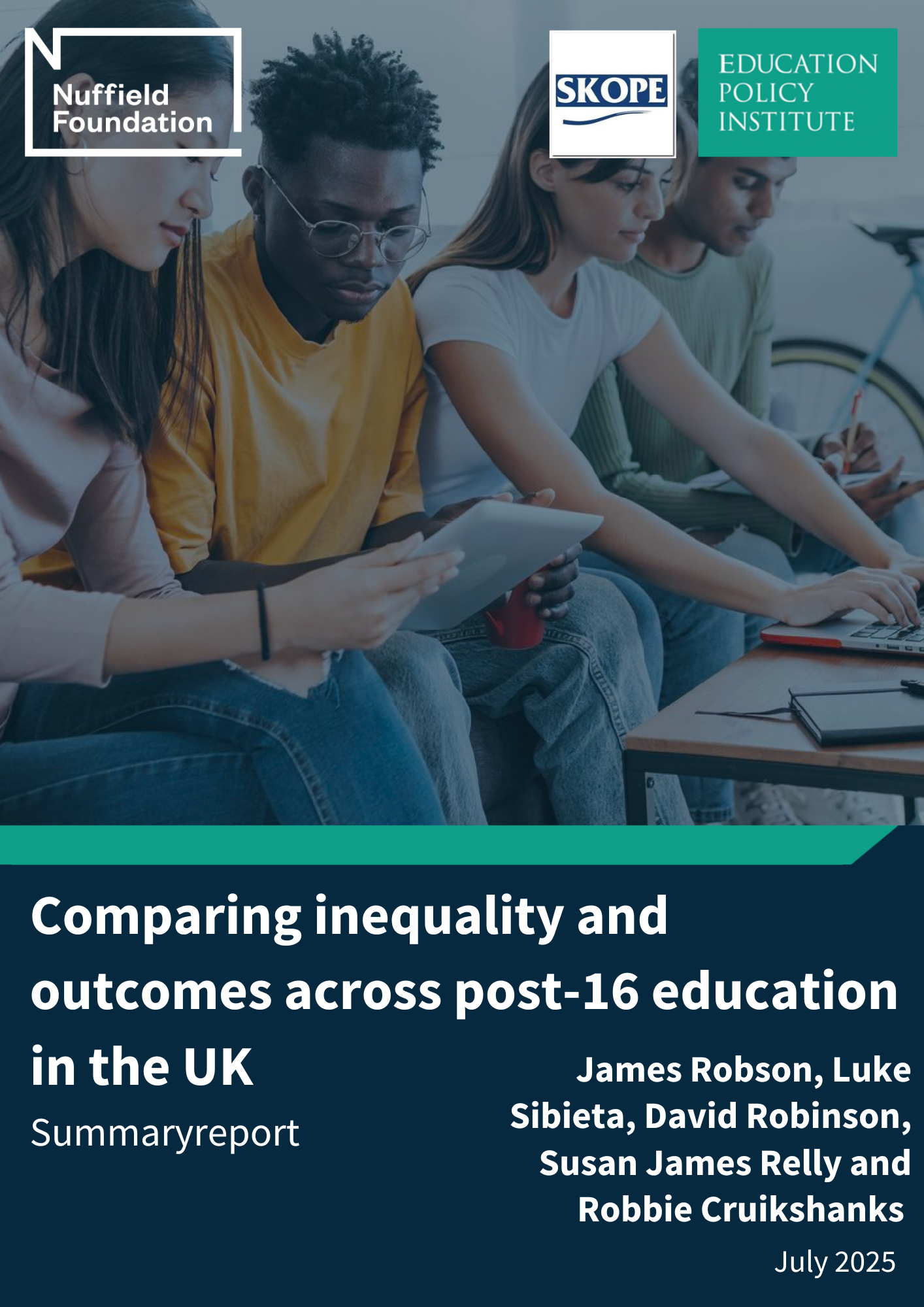Post-16 education and training systems across the UK have been undermined by constant policy churn, fragmented pathways, and a lack of sustained focus from policymakers, according to a report from the Education Policy Institute (EPI) and the University of Oxford’s Centre for Skills, Knowledge and Organisational Performance (SKOPE).
These findings come from a multi-year project jointly conducted by EPI and SKOPE, funded by the Nuffield Foundation, which reviewed post-16 education and training systems across all four UK nations. Key findings from the project include:
- Policy churn, fragmented pathways, and a lack of sustained focus from policymakers have created confusion for young people, entrenched inequalities, and raised serious concerns among employers.
- Educational outcomes in Wales are particularly concerning, with lower participation, attainment, and higher rates of young people not in education, employment or training, particularly among disadvantaged young people.
- All four UK nations must also urgently review apprenticeship participation to ensure greater uptake among young people. Apprenticeships are a popular option amongst young people, but availability remains low for them.
- By failing to address skills deficits, the system also risks holding back efforts to drive economic growth.
The project’s final report, “Comparing inequality and outcomes across post-16 education in the UK”, identifies a series of key recommendations to improve the effectiveness and coherence of post-16 education and training systems.
Key recommendations:
Improve apprenticeship participation: all four nations should conduct an urgent review to increase the apprenticeship participation of young people and those from more disadvantaged backgrounds.
Pay for Further Education (FE) staff: there is an urgent need to conduct a full review of pay and conditions for FE staff.
Establish stable post-16 pathways: there is a huge complexity in post-16 pathways across all four nations, with constant policy churn adding to the mix. Policymakers should target a stable set of post-16 pathways.
Improve coordination: policymakers should establish greater coordination at both national and local levels.
Embed employability skills: employability skills should be explicitly integrated into post-16 curricula as part of ongoing curriculum and assessment review.
Use better data to target inequalities: the UK government and devolved administrations should enhance data collection to facilitate more robust comparisons across nations, with a particular focus on addressing inequalities.
Improve outcomes in Wales: urgent action is needed in Wales to raise the proportion of young people achieving Level 3 qualifications, which is notably lower than the rest of the UK. The share of Welsh boys going to university has hardly increased at all in the last 25 years and is now lower than it was 6 years ago before the pandemic.
You can download and read the full report here:




